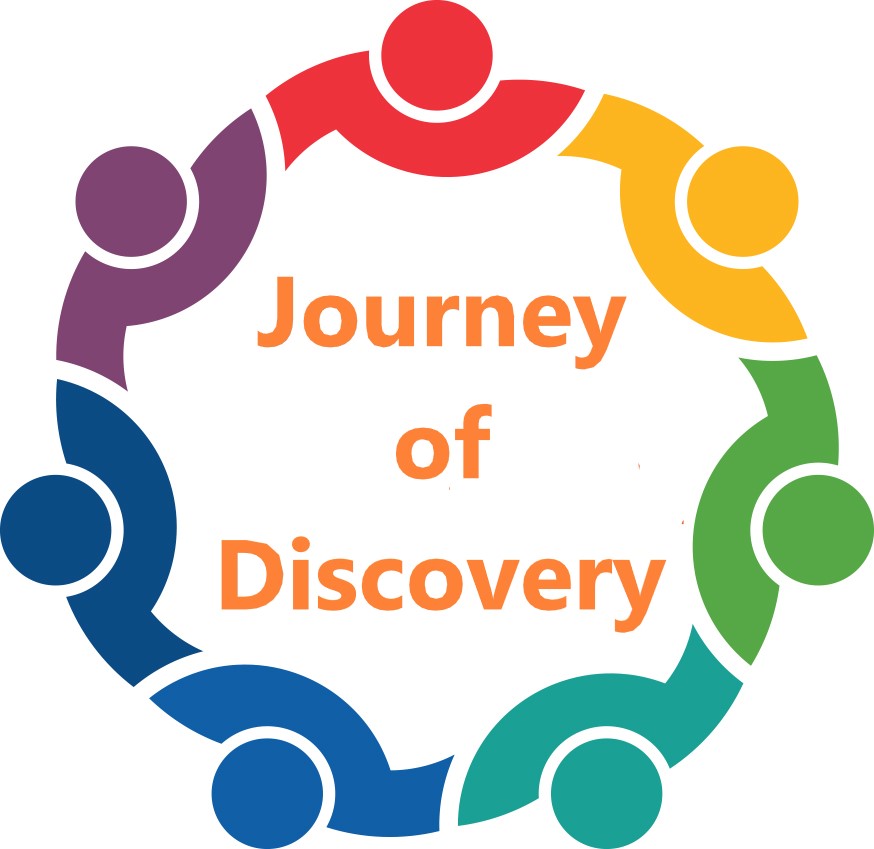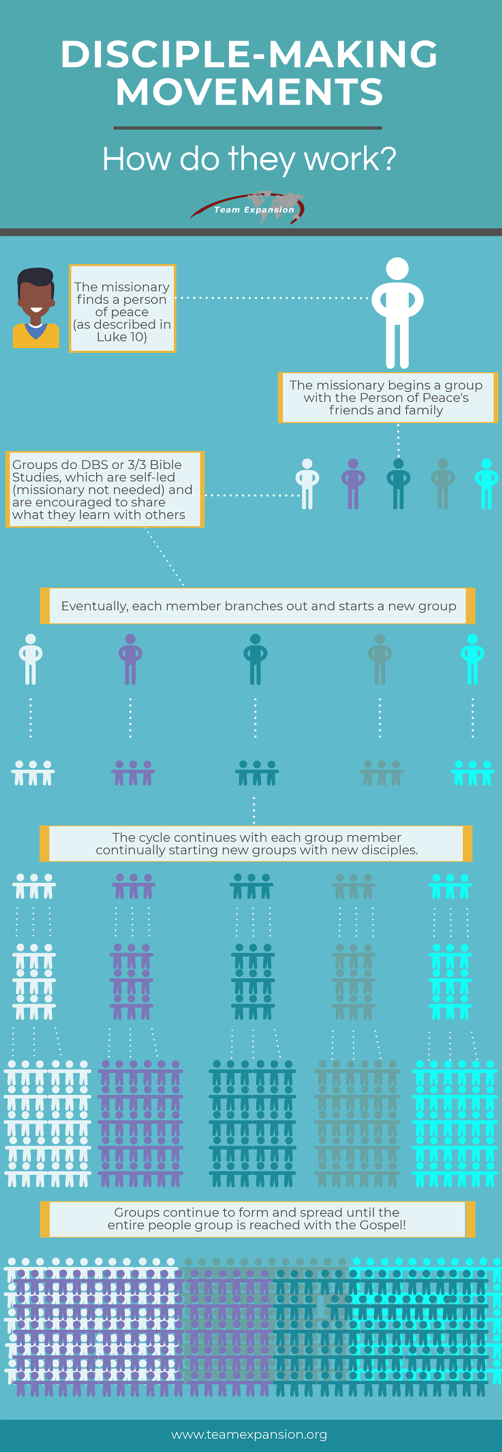
Study Guides
Resources and other material
Here you will find wonderful video’s, training material and other resources to help you make your DISCOVERY BIBLE STUDY GROUP exciting and a remarkable spiritual experience for everyone there.
Training Videos
This method of using the Bible in these DISCIPLE BIBLE STUDY GROUPS to evangelise and making disciple-making disciples has proven itself to be the most successful evangelizing and disciple-making tool used worldwide.
You will also find the resources at this link (free video streaming library) useful.
Down below you will find 3 very important short video’s that will help you understand so much more about this wonderful tool.
Video 1: Watch the following video animation to get the bigger vision behind this Disciple-making Movement worldwide.
Video 2: What is disciple-making? Making disciple-making disciples
Video 3: Why Study the Bible?
A menu for your group
A Menu to follow in your DISCOVERY BIBLE STUDY GROUP
Here is a menu that is suggested to follow in these Discovery Bible Study Groups.
I want to suggest that you follow the following script in the weekly group.
TO DOWNLOAD THIS MENU as a PDF-DOCUMENT, click here:
A Menu to follow in your DISCOVERY BIBLE STUDY GROUP
Welcome to the Journey/Discovery Group.
Discovery Process
- Question 1- How did you do with what you learned last week?
- How did you do with last week’s "I will" and "sharing"?
- With whom did you share last week’s lesson?
- How did you put into practice what you learned from last week’s lesson?
- Question 2 - What are you Thankful for?
An easy way to jump into the group.
Call on someone by name, “Sara, what are you thankful for today?
This question will help you expose the group to prayer. Prayer is expressing our thanks to God.
Eventually you will be able to show them to how to express thanks to God rather than one another.
- Question 3- What is the biggest challenge you are facing today?
Authenticity is key to a community of Jesus followers. This question helps people learn how to relate deeper.
Be careful though, this question can lead to time management issues in the group. Using the word, “today” or “one thing” can help limit the discussion so this question doesn’t derail the group.
- Question 4 - Do you know someone you could serve this week?
This could be one of your neighbours, workmates or then someone in this group.
- Question 5 -What is God saying?
- Read the designated passage aloud in 2 different versions if available.
- Have one person re-tell the passage in their own words.
- You may want to appoint that person before you read.
- Ask others to help add to what may have been missed or their insights
- Question 6 - If this is God speaking what will you do about it?
Develop a tangible statement that will put into practice what you learned from the designated passage.
For example, “I will take 10 minutes a day to reflect on how much God loves me”
“I will begin to recycle because God has given me the earth to take care of.”
To get them to make good “I will” statements you might need to take a few minutes of silence to let each person think about an “I will” statement then ask someone to start sharing what they have developed.
Work to get “I will” statement specific, measurable, achievable, realistic and time bound.
Make sure someone records the “I will” statements so you can ask next week about them.
- Question 7 -Who will you Share with what you learned this week?
Discovery Bible Studies
Discovery Bible Studies are different from the other disciple making tools I have emphasized in one significant way:
Discovery Bible Studies are designed to be used by people who have yet to fall in love with Jesus, not by those who already have.
In fact, one of the main reasons I use the Bible, practice active listening and do intentional inquiry is to find people of peace who do not yet know Jesus, in order to help them facilitate Discovery Bible Studies for their circle of family or friends.
Here is what I equip people of peace do:
Build Community.
They do this by gathering their circle and asking four questions:
- What are you thankful for today?
- What is causing you stress?
- How can we help each other?
- Who else can we help?
Initiate and Sustain Change.
They do this by asking their circle three questions:
- What did we discover last time we met?
- Who did you share it with?
- How did you put it into practice?
Hear and Learn from God.
They do this by having their circle:
- Read the Bible
- Re-tell the Bible
- Respond to three questions –
- What does this passage say about God?
- What does this passage say about people?
- If this is true, what will you do?
Reach Out to Other People.
They do this by asking their circle two questions:
- Who needs to hear what we just learned?
- How are we going to help each other and someone else?
Your turn:
- What people of peace can you equip to lead a Discovery Bible Study for their circle of family or friends?
- What excites you about this possibility? What concerns you?

What is a Disciple-Making Movement?
A DMM (disciple-making movement) is a new and exciting strategy for reaching people with the Gospel.
Traditional Missions
Traditionally, a missionary would be responsible for going out into their community to evangelize daily, disciple as many people as they could, start churches, and pray something would stick.
It put a lot of pressure on the missionary, who was solely responsible for the spiritual well-being of all their disciples. It also severely limited the reach of the Gospel because it could only travel as fast as the missionary could!
The DMM Approach
DMMs, however, can move much more quickly because it removes the missionary as the sole disciple-maker.
With a DMM, a missionary finds a Person of Peace in their community. They start a group with the Person of Peace and their friends and family. These groups are self-led (meaning the missionary does not need to be involved regularly) through Discovery Bible Studies, where the group members are constantly encouraged to share what they’re learning with their own friends and family.
Eventually, each group member will go out and start their own group, then each of those members will start their own groups, and the cycle continues, multiplying the number of disciples exponentially.
With this strategy, thousands of people could be reached in months, something that would have seemed impossible to one missionary under the old system!
(It’s important to note that not each DMM starts or progresses the same way. These movements tend to be messy and can look different depending on the culture and country of implementation. This is, however, the textbook structure for DMMs.)
Needless to say, God is doing big things through DMMs!
Do DMMS work?
In short, YES!
DMMs have proven to be extremely effective across the globe. Team Expansion started implementing DMM principles in 2014 and has seen incredible results.
From 2003 to 2014, our attendance at Team Expansion planted churches grew by 10,000. Then from 2014 to 2017 it grew another 10,000! God did in 3 years what took 11 years before DMMs.
The number of churches and groups started from 2014 to 2017 was 4 times faster than the previous years. And the number of baptisms more than quadrupled!
Definition of a disciple making movement
A disciple making movement is the rapid spread of the Gospel and obedience to it among people who have previously not known and loved God. This was the goal of the Apostle Paul and something he saw happen in Thessalonica (2 Thessalonians 3:1).
Disciple making movements are measured in four dimensions: obedience, and the breadth, depth and rate of reproduction.
